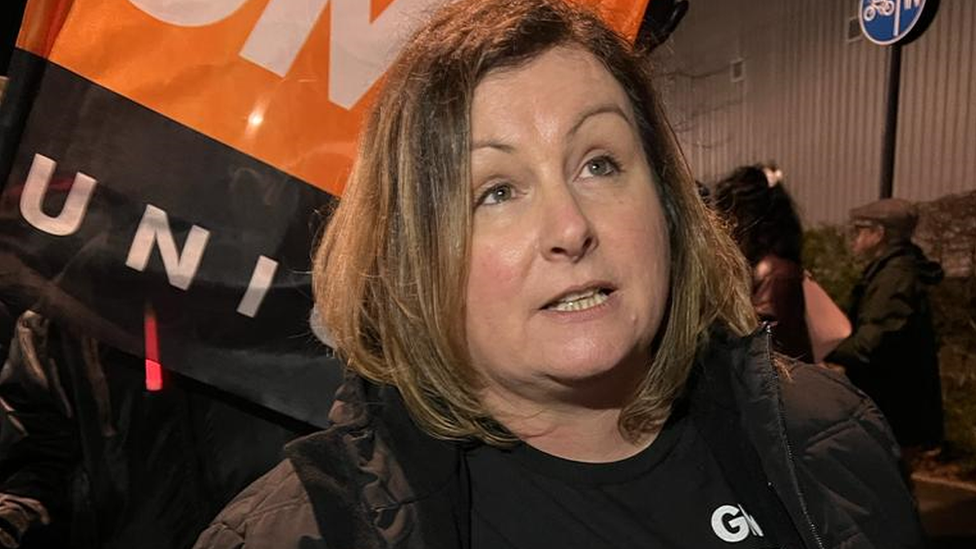Amazon: Unionised Coventry workers announce strike escalation
- Published
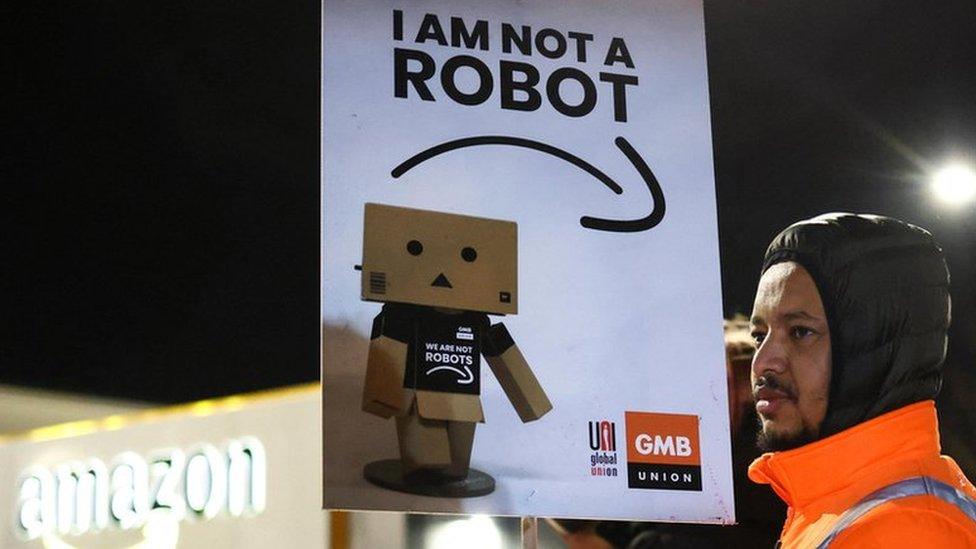
In January, Amazon workers in Coventry became the first in the UK to go on strike
Unionised workers at an Amazon distribution centre have announced more strikes in a row over pay.
About 350 staff at the Coventry warehouse became the first in the UK to take industrial action against the online retail giant last month.
The GMB union is calling for a pay rise from £10.50 to £15 an hour, although the union is not recognised by Amazon.
Amazon previously said it offered competitive pay which had risen by 29% since 2018 as well as other benefits.
Because the tech giant does not recognise the union, it does not enter pay negotiations with its representatives.
GMB announced further strike dates to the employer at 13:00 GMT. The industrial action is due to take place on 28 February, 2 March and for one week between 13 and 17 March.
The union branded Amazon's 5% pay rise offer, worth about 50p an hour, "derisory" and workers also spoke to the BBC about "severe" conditions including constant monitoring and having toilet breaks timed.
Amazon said its "performance management tool" was paused when employees were not logged in at their station.
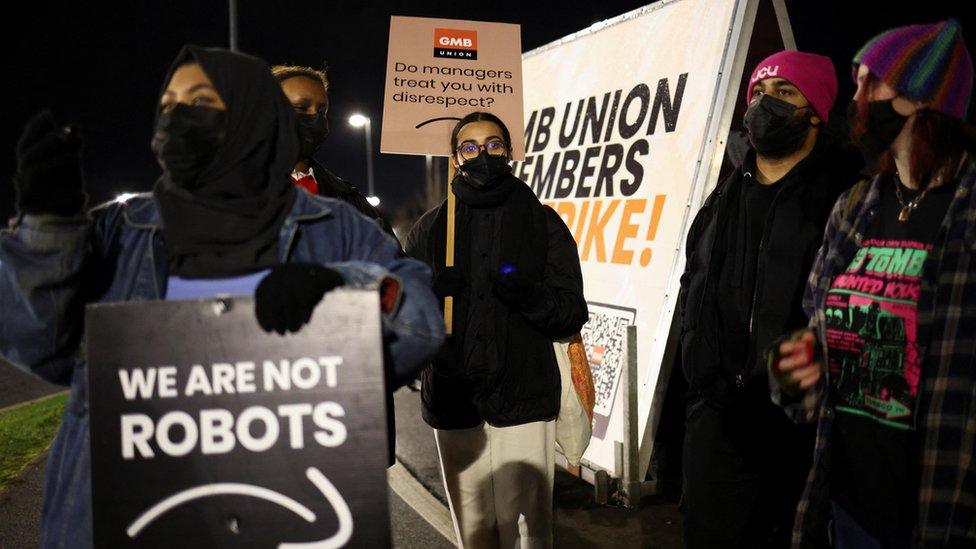
Hundreds of workers in Coventry walked out in January in a row over pay
About 1,500 people are employed at the Coventry site, where Amazon stock is scanned and sent out to fulfilment centres to then be shipped to consumers.
When employees based there walked out on 25 January, they became the first Amazon workers to strike in the UK.
The GMB union is also holding discussions about whether to ballot about 200 of its members working at Amazon's centre in Tilbury, Essex, for strike action.
Amazon's global sales and profits soared as Covid restrictions forced people to shop online. Between 2019 and 2020, profits nearly doubled to $21.3bn (£17.2bn) and rose again the following year to $33.3bn.
However, on 5 January it announced plans to cut more than 18,000 jobs worldwide to save costs.

Follow BBC West Midlands on Facebook, external, Twitter, external and Instagram, external. Send your story ideas to: newsonline.westmidlands@bbc.co.uk, external
- Published28 January 2023
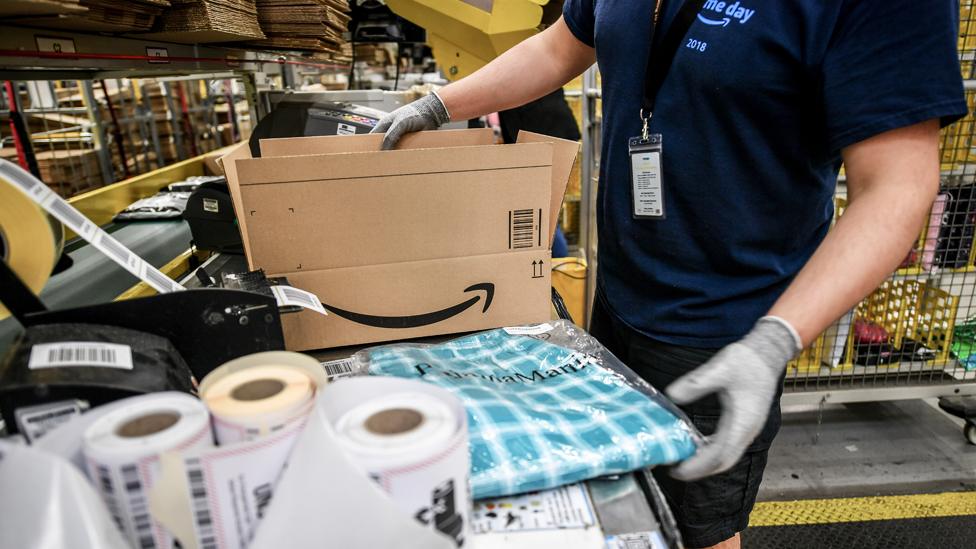
- Published27 January 2023
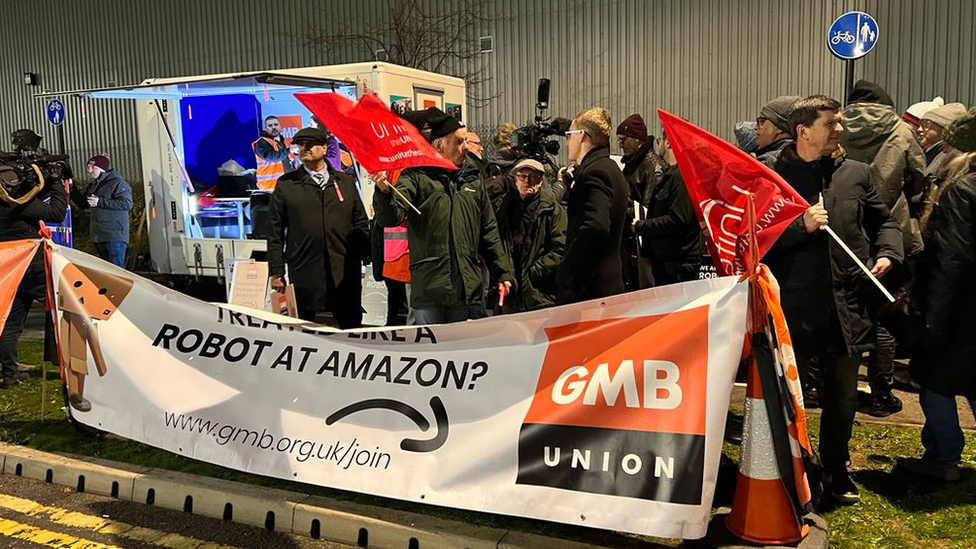
- Published25 January 2023

- Published24 January 2023
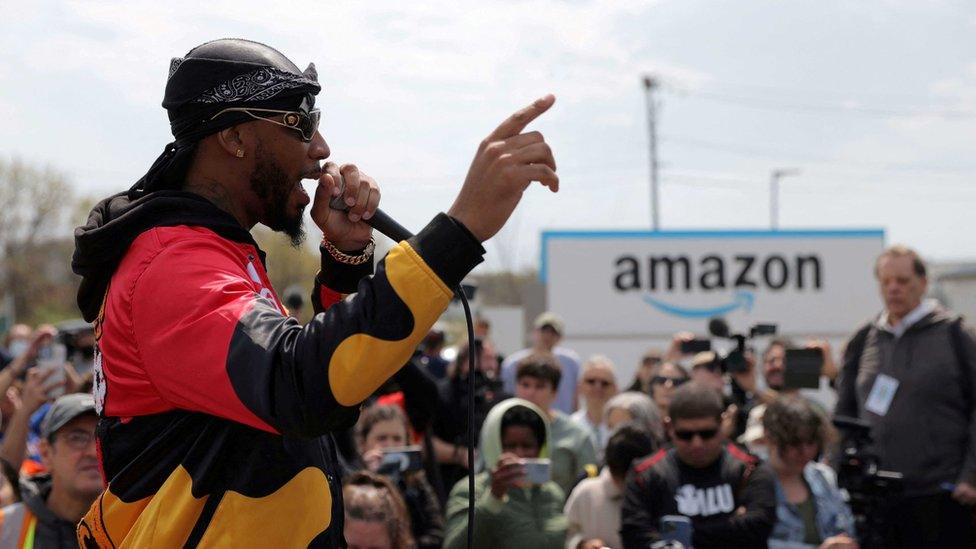
- Published5 January 2023
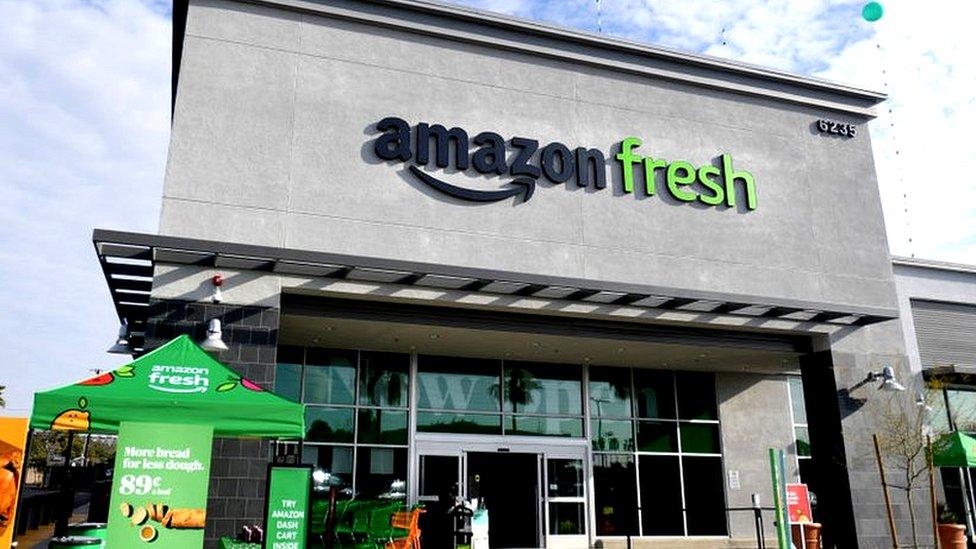
- Published12 January 2023
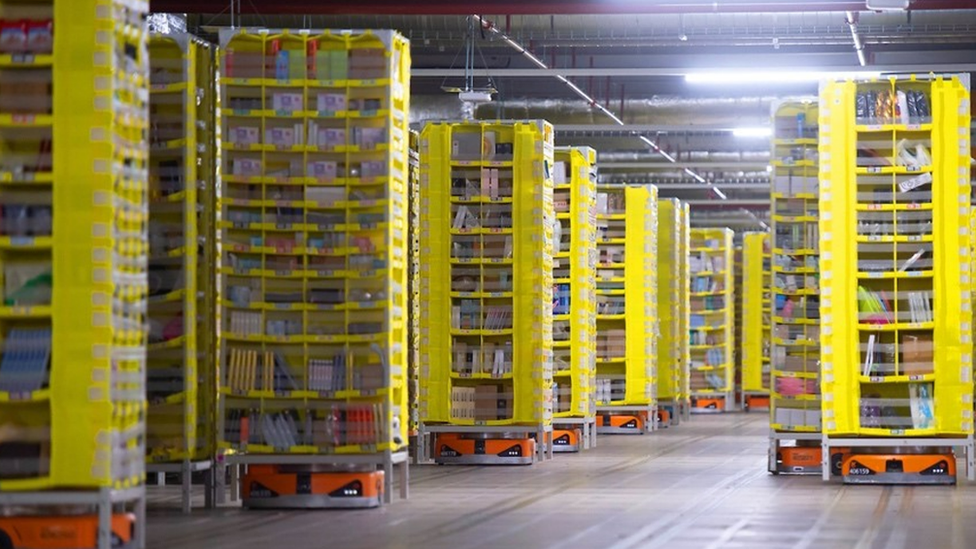
- Published4 January 2023
